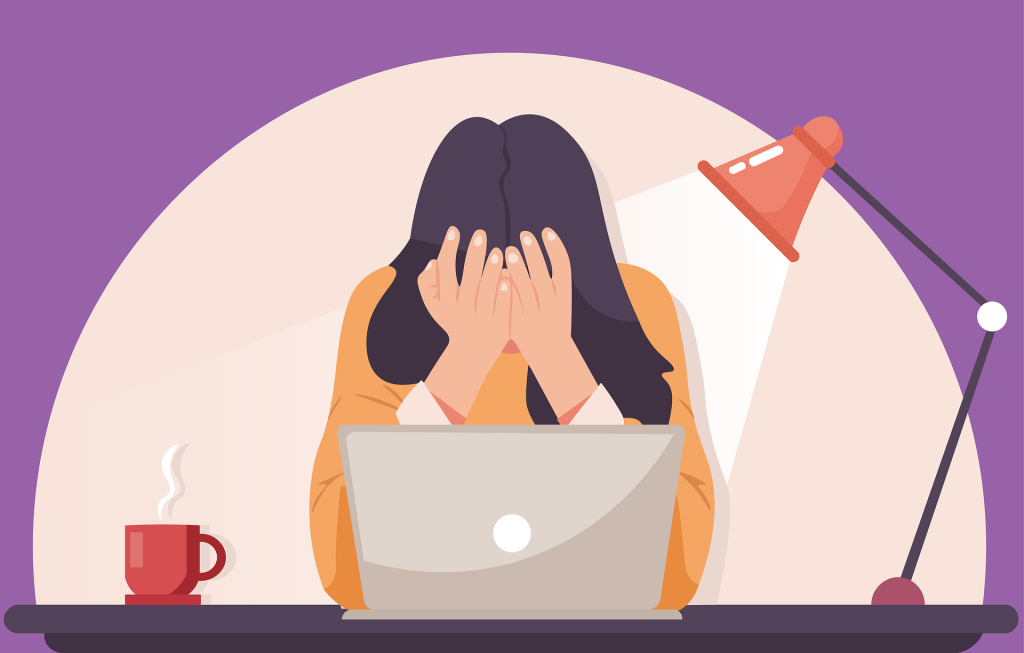by Kelsey Jesser
 Getting a graduate or professional degree is stressful. This seemingly obvious statement is backed up by a substantial body of research demonstrating that graduate and medical students, particularly those from underrepresented groups, have higher than average rates of depression and anxiety. Graduate and professional students (myself included!) can experience long work hours, high pressure to produce and perform, influential and sometimes unsupportive relationships with mentors, a precarious financial situation, and uncertain future employment. These and other challenges that contribute to poor mental health outcomes were exacerbated in 2020 by the COVID-19 pandemic, which led to a dramatic increase in social isolation and incidences of anti-Asian violence. The stress and fear surrounding the emergence of a novel virus was exacerbated by police and vigilante killings of Black Americans and the increasing awareness and protests around the persistent racial violence in the United States.
Getting a graduate or professional degree is stressful. This seemingly obvious statement is backed up by a substantial body of research demonstrating that graduate and medical students, particularly those from underrepresented groups, have higher than average rates of depression and anxiety. Graduate and professional students (myself included!) can experience long work hours, high pressure to produce and perform, influential and sometimes unsupportive relationships with mentors, a precarious financial situation, and uncertain future employment. These and other challenges that contribute to poor mental health outcomes were exacerbated in 2020 by the COVID-19 pandemic, which led to a dramatic increase in social isolation and incidences of anti-Asian violence. The stress and fear surrounding the emergence of a novel virus was exacerbated by police and vigilante killings of Black Americans and the increasing awareness and protests around the persistent racial violence in the United States.
In their recent paper, Schad et al. used survey data collected in 2019 and 2020 to examine the mental health status of medical and biomedical students enrolled at the University of North Carolina at Chapel Hill. They found that while medical students’ mental health improved in 2020 compared to 2019, there were no changes for biomedical doctoral students, whose scores on measures of anxiety and depression remained high and dwarfed those observed for medical students. Several factors that may have contributed to this result. For example, medical students reported higher levels of access to institutional wellness and mental health support than doctoral students did. Moreover, COVID-19 shutdowns impeded degree progress for doctoral but not medical students.
Students from historically excluded groups, including those belonging to LGBTQ+ communities and racial and/or ethnic minorities, reported significantly worse mental health outcomes than those who did not identify as members of historically excluded groups. These results correspond with national trends showing higher burdens of mental illness in historically and currently marginalized populations that are related to systemic and structural inequities. Those belonging to racial and/or ethnic minority groups also had significantly worse mental health outcomes for depression, anxiety, and suicidal ideation in 2020 compared to 2019. The study authors suggested that heightened visibility of racial inequities likely contributed to worsening mental health outcomes during this time.
These results point to the need for action. The urgent mental health needs of biomedical doctoral students, and in particular those belonging to underrepresented groups, must be addressed. It is crucial, now more than ever, to provide both in-person and remote mental health services that reflect the diversity of the student community. Furthermore, mental health support for all student populations must be accompanied by thoughtful and thorough investigations of the systemic and structural issues in academia that contribute to poor mental health outcomes. Trainees in academia are the future of science and medicine, and our academic institutions have a responsibility to foster and sustain their health and wellbeing.
Schad A, Layton RL, Ragland D, Cook JG. 2022. Equity, Diversity and Inclusion: Mental health in medical and biomedical doctoral students during the 2020 COVID-19 pandemic and racial protests. eLife 11:e69960. https://doi.org/10.7554/eLife.69960
